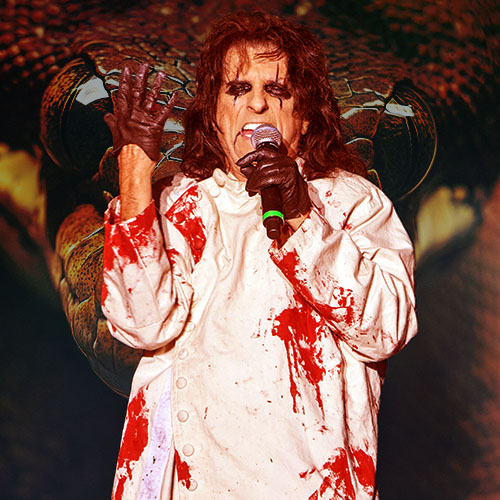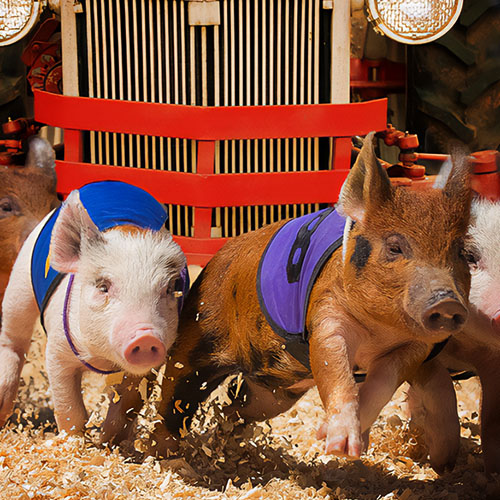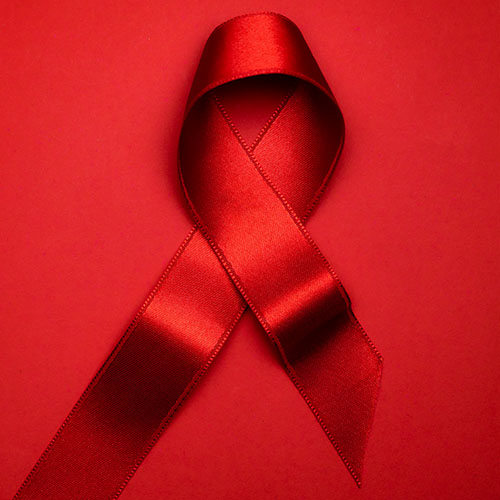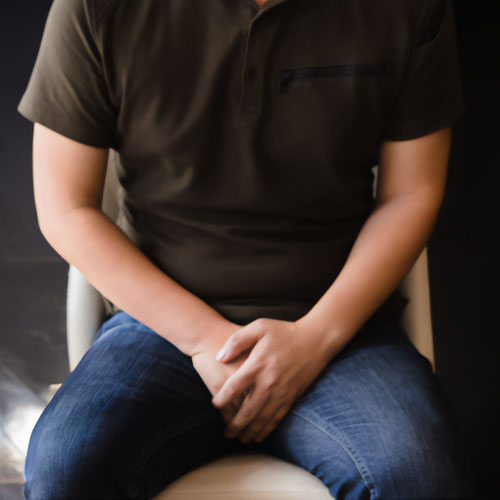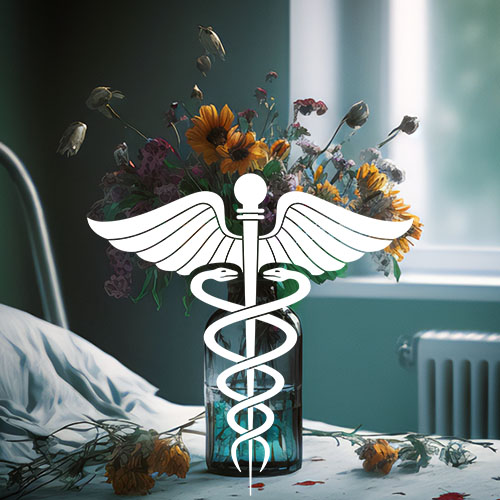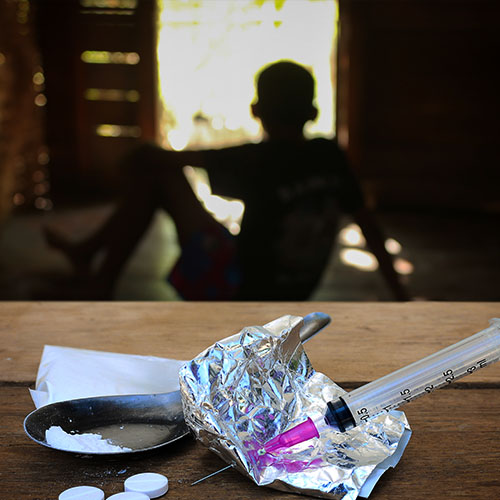A very personal journey through hell.
Does Carcinosarcoma Mean I’m Going to die?
Carolyn had a routine mammogram not a month before, and it had turned out normal. It revealed a completely normal blue breast on a piece of photographic paper, like all the other blue breasts in the X-ray world. I could see her ribs in the hideous light, as if she’d been dissected, all flesh removed.
A few weeks later she was standing in our bedroom dressing and the sunlight was coming through the open window, illuminating the line of her half-draped body like a Degas painting. Quite accidentally, she brushed her hand against the side of her right breast and felt something. “What’s this?” she asked. “It feels like a lump or something.”
“Didn’t you just have a mammogram?” I asked.
“Yes,” she said, feeling the lump, a concerned look on her face. “But this wasn’t there.” It was the size of a pea.
She called her doctor back.
Rich Actis, the obstetrician-gynecologist, assured her that it was “probably nothing.” But at the same time he hastened to add, “We don’t want any kind of unidentified lump in your breast.”
The fabric of our lives was first undone in March. Under a local anesthetic, Actis made a small incision in the side of her right breast, went in with a scalpel, and stole the pea.
Carolyn was bandaged up, and we sat waiting so that Rich Actis could get a quick look at a frozen section of the tissue under the microscope. Just as he suspected, it looked like nothing, a fatty deposit, one of the tumbling dice of DNA in the game of chance that Nature plays with our cells all day long when we think we’re alone, controlling our own destiny.
Actis was back very fast. He called us into a small examining room. Carolyn sat; I stood beside her. Rich Actis was a young, funny, athletic guy who had delivered one of our daughters. (“I’ve got my catcher’s mitt on,” he’d said at the moment when Amelia was about to be born.) But when he entered the room, he was not a funny guy anymore; this was no joke. Carolyn saw it in his face and took my hand.
“This is not a death sentence,” Actis said by way of introduction, and at first I had no idea what he was talking about, so certain was I that everything was going to be fine. It simply didn’t register, because I had not even considered the possibility that something could go awry — I had plans. Even when the word came out of his mouth, it still made no sense to me: “It’s cancer,” he said. I felt Carolyn’s fingernails dig into my hand, and I thought, Wow. what’s she doing that for? I still didn’t get the picture.
Actis wasn’t talking about us. He was saying something, but I knew it couldn’t be about us. “A certain amount of additional surgery will be required, perhaps some chemotherapy or radiation, I don’t know …” He kept talking, and all the while I was thinking, Are we in the right room here, or what?
“I thought of Carolyn, locked in a freezer somewhere, caught in an endless loop of fruitless mitosis — as a diabolic entertainment for medical students.”
I think I first began to admit to myself what was happening when I had to go around to the neighbors and ask for blood. There was, indeed, going to be more surgery — lots of it — and there was the possibility of a transfusion. The surgeon suggested that, considering the danger of AIDS, we might be more comfortable getting a supply of blood from people we knew.
They took some of Carolyn’s cells and sent them to New York for evaluation. Some expert had thought them so interesting that he wanted to show them to his classes.
“I don’t want to be interesting,” Carolyn said. “I want to be boring.”
I thought of Carolyn, locked in a freezer somewhere, caught in an endless loop of fruitless mitosis — as a diabolic entertainment for medical students — casting her long shadow down the decades into some future that we could not imagine. She’s so interesting, doctor, that I want to keep her, too. They actually got testy when I asked for her cells back.
Melody was a pale young oncologist with pale plastic spectacles and reddish-blond hair. She wore a flowery, ankle-length Laura Ashley dress and what my mother used to call “sensible shoes.” Over this ensemble she wore a lab coat. The examining room at the University of Illinois Hospital had a colorless linoleum floor, and sudden changes in the weather had caused the heating system to go crazy, so everyone had thrown open the windows. Now green-gray curtains the color of surgical scrubs sighed in and out with a humid breeze from the grassy courtyard. A framed print of a tranquil bay (perhaps somewhere in Greece?) hung, modest and anonymous, above the blood-pressure cuff by the steel examination table.
We had heard and read about a new operation called lumpectomy, which had replaced mastectomy, the older procedure in which the entire breast is removed. In lumpectomy only the tumor is removed, not the entire breast. And so this had become fixed in our minds: If we were to have cancer, we were going to be lumpectomy people. Secretly, our campaign had become: save the breast. That way she would have one good, original, natural breast and one that was only slightly depleted.
On our first visit to her office, Melody conducted a very thorough, thoughtful, and unhurried interview. Unlike some physicians we had met, Melody addressed herself to Carolyn, not to me, which showed that she knew which one of us had cancer. In our trek through the medical world in search of Melody, we had found those who would tell us, “Well, you’ve already had children. What do you need your breasts for?” The medical world is filled with cruel, callous, and incompetent people like that, and it took us a lot of research and a long time to find Melody (and time was running very short), but when we did, we clung to her, knowing she was one of us.
No fewer than a half-dozen doctors had examined both of Carolyn’s breasts repeatedly before we came to Melody. It is revealing about the state of the medical arts that not one of them discovered what Melody found on our first visit to her: Carolyn had cancer not only in the right breast, but in the left as well.
Having found cancer on both sides now, Melody was led to suspect that both tumors may have come from somewhere else — that they were signs of some distant, undiscovered primary cancer that was spreading. She began a thorough physical examination to feel for lumps … well, everywhere.
There was a time of adjustment, and another very busy time of running the errands of survival. Carolyn made a will — just a tiny one, because she believed deeply in her own survival — but a will nonetheless, because she also believed in doing her duty. We had to explain to the children what was going on. They knew far more than we gave them credit for.
A barrage of tests, another series of doctors poking and prodding for the hidden cancers, turned up nothing. Carolyn had primary breast cancer — two different kinds — one kind in each breast. Why does that happen? No one seemed to know. It just happened. And surgery was the only answer. It was surgery or death.
We met the second member of our healing team through Melody. His name was Tom Witt, and he was a tall, young family man whose hobby was fine carpentry. I asked him how he felt about working with high-speed electric saws that could quickly cut off all his fingers. He smiled and shrugged; he wasn’t worried — he was a fighter-pilot kind of a guy.
When Tom Witt recommended cutting off both breasts to save Carolyn’s life, he pointed out something that I had not thought of before. “If you had colon cancer,” he said, “you wouldn’t question me when I said you had to have 12 inches of [your] gut removed. As far as you’re concerned, there’s a black box inside you. You don’t know what’s there, and you won’t know after it’s gone. You’d say, ‘Do it.’ But because you can see this, you have a different attitude toward it.” And, of course, he was right. Appearances are everything. Sometimes they’re worth dying for. Sometimes they’re worth living for, too.
I remember that in those days, we were always in small rooms, like prison cells, and I always found myself sitting down, watching Carolyn change into a paper gown. Under the microscope the cancer in her left breast was described as “ugly,” and on one of those earlier days, the doctor had talked about the possibility that it was, actually, a carcinosarcoma, rather than what we had originally thought she had, which was merely a more aggressive kind of breast cancer called metaplastic carcinoma. “It’s very rare,” the doctor said. Very rare, like very interesting, was something Carolyn did not want to be. “Does carcinosarcoma mean I’m going to die?” she’d asked.
The most interesting thing to me now, looking back on it, is how very long it took to get the offending tissues completely out of Carolyn’s body. Carolyn did everything right. She called her doctor quickly. She went when she was told to go and allowed them to cut when they wanted to cut, eventually having surgery three times. And even at that, it took nearly three months from that sunny day in our bedroom when she inadvertently brushed against the lump with her hand (she was not examining her breasts — she never did self-examination like the posters recommend) until she had been surgically separated from her cancer. The cancer nearly doubled in size before they could get it out.
On the day of her major surgery, I wandered from the hospital waiting area to the cafeteria at the University of Illinois. I sat down for a cup of coffee and marveled at what was going on. I felt like a freak among all those normal people eating their breakfasts in the cafeteria. I felt sure that it must show, that I was different — marked, somehow. I took my coffee up to the office of a friend of mine, a doctor, and after a while the phone rang and it was Tom Witt. He was in the operating room, and he wanted me to know it was over. They were gone. Carolyn’s breasts were in a stainless-steel pan in an elevator. I went out onto the street, where it was too sunny, and the emptiness I had felt since Actis first said the word cancer became deeper. I thought: Now their last, shimmering warmth is dissipating in the icy air of a pathology lab.
Later, in the hospital room, Carolyn was awake, no longer feeling the effects of drugs. The nurse told her that she could have anything she wanted — morphine, Demerol, you name it — for pain. But Carolyn didn’t want much, just food. She was famished all the time and ate whenever she got a chance. She was hurtling toward recovery, greedy for her own health. That’s the way it has to be: The patient has to be impatient.
“The medical world is filled with cruel, callous, and incompetent people, and it took us a lot of research and a long time to find Melody — and time was running very short.”
As the days went by, the clutter of tubes diminished. Tom Witt came by one day when Carolyn was standing in the flow of sunlight from the window, dressed in her white gown, arranging photographs on the wall. She called the assemblage her Power Poster: snap-shots of people who had been helping her, including children, relatives, friends, doctors, parents, and pets. There were balloons and cards and flowers everywhere, and the music of Mozart played from a tape recorder.
Tom Witt smiled when he saw Carolyn, and she did a little tap dance in her slippers for him. “I’m still dancing,” she said.
The chemotherapy nurse arrived at our house a few weeks later. Kathy was pretty and tall and wore a red dress. I held Carolyn’s hand as Kathy prepared the butterfly set, which consisted of a hypodermic needle with green plastic wings, like a butterfly, and a tail of plastic tubing that led to a shank, which fitted to the big, ugly syringes of chemo drugs. The idea of chemotherapy is no more sophisticated than that of war: A brutal, all-out assault on the territory, killing friend and enemy alike, but with the ultimate hope that more enemy traitors will die and that a few friends will be left when we pull back.
Now the needle was in her vein, and the tubing coiled upon her arm like a horned viper. The methotrexate was iodine-colored, and Kathy pumped it in, sucking blood back into the pale tubing at intervals to make sure the chemical went into the vein and not muscle, which it would kill.
That evening we waited for illness and watched Bill & Ted’s Excellent Adventure. Illness and laughter came, but not in equal measure. Kathy said Carolyn must have a stainless-steel circulatory system. We strongly recommend Bill & Ted’s Excellent Adventure to those undergoing chemotherapy.
Months have passed, and Carolyn’s on some other drug, a new experimental therapy that suppresses estrogen and offers some faint hope of preventing cancer growth for as long as you’re willing to take the drug. It’s almost spring now, time once again to go through all the tests — the barium enema, the iodine milk shake, the CAT scan and bone scan, the blood tests and needles and the basket of plastic snakes. There is no test, per se, for cancer. Most people never know they have it until it’s grown big enough to become rudely intrusive.
Every time the phone rings now, someone asks, “How’s Carolyn?” People say the strangest things without thinking. Everybody wants to know the lurid details, and no one ever seems to think it awkward to ask, “Did she lose her hair?”
“What’s her prognosis?” How did that word get into the language so easily? It’s actually code for: Is she going to die? Yes, we’re all going to die. The question is how and when and what for? Not even Melody, who knows everything, can answer that one.
The prognosis is this: You wake up in the morning, and if you’re alive, you’re doing well. You’d better make the most of it, because one of these days you’re going to be dead. We’re just like everybody else, only now we know it.
In May of 1979, I was supposed to fly to a convention in Los Angeles, but didn’t. Shel, Judy, Mary, and Vicki — four very special friends of ours — did go on that flight. It crashed and they were all killed. The flight lasted 31 seconds. I always thought about Shel, Judy, Mary, and Vicki going together. I thought of Shel and Judy holding hands, sitting close together for 31 seconds, with the airplane roaring and howling … and then simply lighting up, incandescent, like the first great moment of creation.
It’s taken me a while to assess where we are here, Carolyn and I, but now I think I know. This is the flight we weren’t supposed to take. But now that we’re on it, I have the feeling that, unlike 1979, it’s going to be a pretty long journey. And that we might be lucky … compared with some.
Always the horror, and yet always the politics. And the hope. And the efforts to remain hopeful as the reality of mortality becomes too insistent to ignore.
















